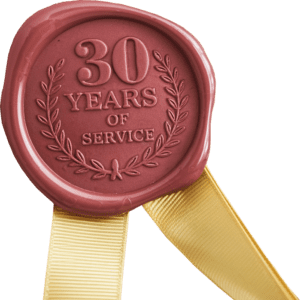Strategic Reviews: Aligning Your CRM with Business Objectives
To truly reap the benefits, you have to ensure your CRM aligns seamlessly with your overarching business objectives
Implementing a Customer Relationship Management (CRM) system is a significant investment for any organisation. But deploying the system is just the beginning. Regular strategic reviews can make this alignment possible, helping organisations and enterprises maximise their CRM’s potential and drive growth.
The Importance of Strategic Reviews
Strategic reviews are systematic evaluations of your CRM system in the context of your business goals. They help you:
- Assess Alignment: Determine whether your CRM functionalities support your strategic objectives effectively.
- Identify Gaps: Uncover areas where the CRM may be lacking or where enhancements could deliver added value.
- Adapt to Change: Ensure your CRM evolves alongside market trends, customer behaviours, and organisational shifts.
- Optimise ROI: Maximise the return on your CRM investment by leveraging its full capabilities in line with your goals.
Steps to Align Your CRM with Business Objectives
- Define Clear Business Objectives
Before diving into a strategic review, it’s essential to have well-defined business goals.
- Set SMART Goals: Ensure your objectives are Specific, Measurable, Achievable, Relevant, and Time-bound.
- Prioritise Objectives: Identify which goals are most critical to your organisation’s success.
- Map CRM Capabilities to Objectives
Analyse how your CRM’s features support each of your business objectives.
- Feature Analysis: List out CRM functionalities and align them with corresponding business goals.
- Gap Identification: Highlight objectives that aren’t adequately supported by current CRM capabilities.
- Collect and Analyse Data
Leverage your CRM’s data to gain insights into performance and pinpoint areas for improvement.
- Key Metrics: Monitor indicators like customer acquisition rates, sales cycle lengths, and customer satisfaction scores.
- Data Trends: Look for patterns that signal success or highlight issues needing attention.
- Engage Stakeholders
Involve key personnel from various departments in the review process.
- Cross-Functional Input: Gather feedback from sales, marketing, customer service, and IT teams.
- Customer Feedback: Consider insights from clients to understand their experiences and expectations.
- Identify Opportunities for Improvement
Based on your analysis, determine where enhancements can be made.
- Process Optimisation: Streamline workflows and eliminate redundancies.
- Feature Upgrades: Implement new CRM features or integrations to address identified gaps.
- Training Needs: Recognise if additional staff training is required to utilise the CRM effectively.
- Develop an Action Plan
Create a detailed plan to implement the identified improvements.
- Set Timelines: Establish deadlines for each action item.
- Assign Responsibilities: Delegate tasks to appropriate team members.
- Allocate Resources: Ensure necessary budgets and tools are available.
- Monitor and Adjust
Continuously track the impact of changes and adjust your strategy as needed.
- Regular Reviews: Schedule periodic strategic reviews to stay aligned with business objectives.
- Adjust Goals: Be prepared to modify objectives in response to market shifts or organisational changes.
Benefits of Regular Strategic Reviews
- Enhanced Performance: Improved alignment leads to better CRM utilisation and business outcomes.
- Informed Decision-Making: Data-driven insights support more effective strategies and tactics.
- Competitive Advantage: Staying aligned allows you to respond swiftly to market changes, keeping you ahead of competitors.
- Employee Engagement: Involving staff in the review process fosters a sense of ownership and commitment.
Common Challenges and How to Overcome Them
Lack of Clear Objectives
Without defined goals, aligning your CRM is impossible.
- Solution: Invest time in strategic planning to establish clear objectives before conducting reviews.
Data Overload
An abundance of data can be overwhelming and hinder effective analysis.
- Solution: Focus on key performance indicators (KPIs) that directly relate to your objectives.
Resistance to Change
Employees may be hesitant to adopt new processes or technologies.
- Solution: Communicate the benefits clearly and provide training to ease the transition.
Insufficient Resources
Limited budgets or staff can impede the implementation of improvements.
- Solution: Prioritise actions based on impact and feasibility, and consider phased implementation.
Regular strategic reviews are essential for aligning your CRM system with your business objectives. By systematically assessing performance, engaging stakeholders, and implementing targeted improvements, your organisation can maximise the value of your CRM investment. This alignment not only enhances efficiency and customer satisfaction but also positions your business for sustained growth in a competitive market.
Need assistance in aligning your CRM with your business goals? Our Melbourne-based team specialises in conducting strategic CRM reviews . Contact us today to learn how we can help you optimise your CRM and drive your business forward.


